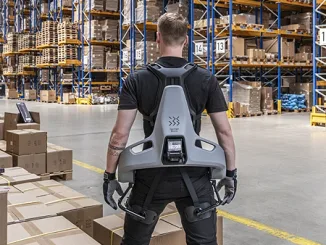
We’ve all been there: your once-hot shower suddenly turns icy cold, instantly dampening your spirits. Maybe someone else in the house took an extra-long shower, or you did a few too many loads of laundry. It’s a classic case of demand outstripping supply. Michael Rigney believes he can predict when a household will need more hot water, eliminating cold showers without resorting to costly alternatives like on-demand water heaters.
The fundamental technology behind most water heaters, whether gas or electric, has remained largely unchanged for decades. They might be affordable to purchase, but they’re not cost-effective to operate.
Heat pump water heaters have started to change that for many homeowners, boosting efficiency and lowering utility bills. However, Rigney saw further room for improvement.
In 2020, he founded Cala Systems in Boston just as heat pump water heaters were gaining traction. “There was an entrepreneurial opportunity to build the best heat pump water heater,” Rigney said.
Traditional water heaters are relatively simple devices: they consist of an insulated tank, a heating element, and a thermostat. Most people set the temperature once and forget about it, occasionally adjusting it for guests. As hot water is used, cold water replaces it, lowering the tank’s temperature until the thermostat activates the heater.
“That’s really antiquated,” Rigney said. “We can do better in 2024.”
Cala Systems’ water heater pairs an advanced heat pump with an AI-powered control system to forecast hot water demand and heat the water accordingly. The system gathers general information like weather forecasts and time-of-use energy pricing, sending it to the water heater. This data is analyzed alongside household-specific information, such as water usage patterns, incoming cold water temperature, and whether the home has solar panels. Rigney emphasized that the company will never sell household data.
By analyzing water use patterns, the tank can predict surges in demand and heat water efficiently. For instance, if sunny days are forecasted followed by cloudy weather, Cala’s algorithms might use daytime solar power to preheat the tank. This approach effectively turns the tank into an energy storage system for use on cloudy days.
In other scenarios, when both weather and water demand are stable, Cala’s water heater can slow down the compressor, increasing the time to heat the tank and boosting efficiency by about 30%. “It’s a significant impact,” Rigney noted.
And if guests are coming over? Cala included a boost mode that can be activated on the tank or via an app.
Currently, water heaters in the U.S. are nearly evenly split between natural gas and electric resistance, with oil, propane, and heat pumps making up the rest. Water heating accounts for around 20% of the typical American household’s energy usage. Heat pump water heaters drastically reduce this while also cutting dependence on natural gas.
Heat pump water heaters still represent a small market share, but they are rapidly growing, aided by incentives from the Inflation Reduction Act. Although more expensive to install initially, they are cheaper to operate in the long run, reducing household carbon emissions.
Rigney shared that Cala will source parts from various suppliers and assemble the final product in the U.S. “This is not a product that ships well,” he joked. The company’s first product, a 65-gallon model, will be priced at $2,850 and is available for pre-order with delivery expected early next year. This is about $800 more than competitors, but Rigney argued that lower utility bills will offset the higher initial cost over time.
To support the rollout, Cala disclosed to media that it has raised a $5.6 million seed round led by the Clean Energy Venture Group and the Massachusetts Clean Energy Center, with participation from Burnt Island Ventures, CapeVista Capital, and Leap Forward Ventures. With so few heat pump water heaters sold to date, “this is a truly nascent category,” Rigney said. “We see an opportunity to redefine what people expect a water heater to do.”
Source: Techcrunch.com




